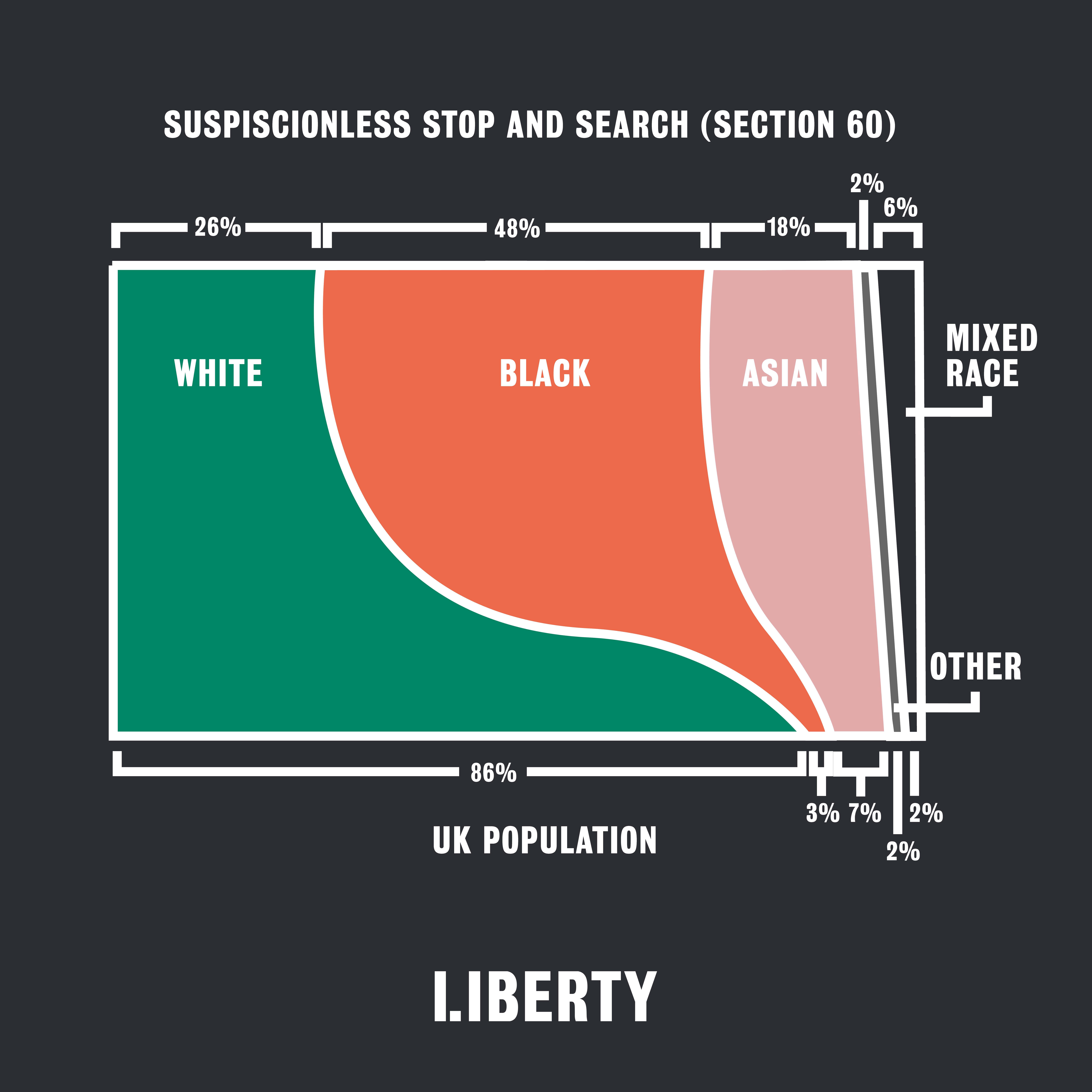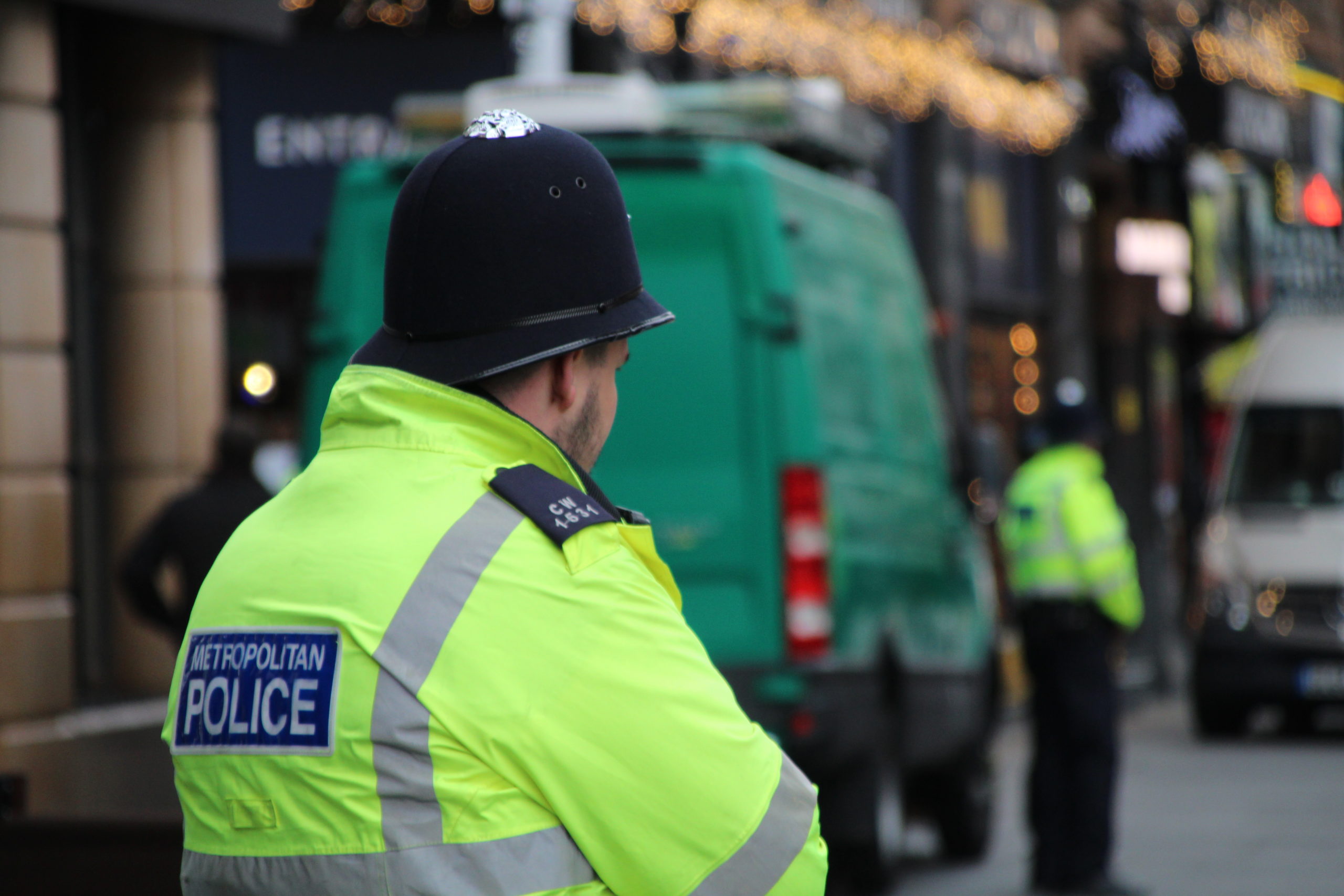Anti-racism / Policing
SIX WAYS TO STOP SPIRALLING RACIAL DISPROPORTIONALITY IN UK POLICING
Posted on 27 Jul 2020
Racism in UK policing has a long history. But powers and practices in force today risk further entrenching, rather than alleviating, this injustice. Politicians of all parties must urgently tackle spiralling racial disproportionality in UK policing and across the criminal justice system more broadly.
Liberty has been calling for and continues to call for:
1. Roll back stop and search and repeal suspicion-less stop and search powers
Black people are over nine times more likely than white people to be stopped and searched. Under Section 60 suspicion-less stop and search, this rises dramatically.
Boris Johnson defends stop and search, but the Government’s Serious Violence Strategy states that there is no evidence that it reduces serious violence.
The Government must repeal suspicion-less stop and search powers and implement a scheme to improve outcomes from under regular (so-called section 1) stop and search powers. It must also ensure forces that fail to address race disproportionality are held to account.


2. Scrap the Gangs Matrix
The people on the Metropolitan Police’s “Gangs Matrix” database are 77 percent Black. But just 27 per cent of those convicted of offences related to serious youth violence are Black.
The Matrix is a watchlist of people who the police designate “gang nominals” based on vague criteria which may include who your family or friends are, or what music videos you share on social media.
A person’s inclusion on the Matrix has serious repercussions. It may be used to inform decisions on stop and search – with people on the Matrix reporting being subject to multiple stops a day – and entrench discrimination in areas such as in housing, education, immigration and employment.
3. Ban facial recognition technology
Facial recognition technology is more likely to misidentify people of colour.
When this tech is used by the police for mass surveillance, this hard-wired discrimination leads to more people of colour being stopped by the police.
It will also be used for racial profiling and will contribute to over-policing of black communities – it has already been used to police Notting Hill Carnival.


4. Ban predictive policing algorithms
Police forces are using predictive policing algorithms to make decisions about who is likely to reoffend and which communities should be most frequently patrolled.
These programs rely on large quantities of data which reflect existing patterns of discrimination in policing.
This means they replicate and entrench that discrimination while shielding it from scrutiny.
The algorithms are both secret and impenetrable, and people think the human bias has been removed.
5. Scrap Knife Crime Prevention Orders
Last year, the Government introduced Knife Crime Prevention Orders, which allow the authorities to place wide-ranging restrictions on people as young as 12, who have not been charged with any crime.
Failing to comply with these restrictions will mean they have committed a crime – which risks funnelling more young people into the criminal justice system.
6. Roll back use of Tasers
Black people are eight times more likely to be Tasered than white people. Tasers can be lethal, but the Government is expanding their use – despite protests from some police chiefs, as well as over-policed communities.
Tasers should only be in the hands of trained fire-arms officers, they should not become normalised in everyday policing. The rollout should be reversed.
Urgent action needed
These tools and powers collectively make it harder for people of colour, particularly Black men, to live without being criminalised.
Urgent action is needed to address long-term and systemic disparities in how our communities are policed. These are concrete, evidence-based steps that could address some of the worst excesses of discrimination in UK policing and ensure all of our communities are safe.
I'm looking for advice on this
Did you know Liberty offers free human rights legal advice?
What are my rights on this?
Find out more about your rights and how the Human Rights Act protects them
Did you find this content useful?
Help us make our content even better by letting us know whether you found this page useful or not
